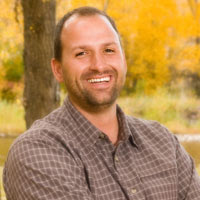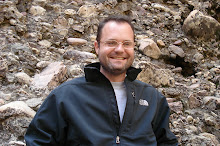
By: Josh Watson, LMSW
“Change” seems to be the nation’s mantra as we welcome a new year with open arms. We are a nation that is constantly evolving based on several factors associated with things like technology, environment, family dynamics, disease, political decisions, and economic conditions. These are obviously just a few examples of issues that trigger change and require adaptation on more of a global scale. However, as a therapist in the private treatment sector I must not ignore best practice methods that are consistently changing to meet the needs of struggling teens and families.
More specifically, I am a therapist by trade, but I am also a minority owner and Director of Admissions for the Aspiro Group of Programs. Aspiro is a very innovative and clinically sophisticated, outdoor program that provides a strong emphasis on adventure therapy to targeted groups of adolescents and young adults. One of the primary reasons we created Aspiro was to address the ongoing needs that are constantly changing for teens and families. These needs are a direct reflection of the issues we deal with on a global scale that I made reference to earlier. One of our mantras at Aspiro has been to “think outside of the box.”
This is not only something our staff does internally, we also teach our students and families to do the same thing. Rigid thinking patterns often create frustration and power struggles, even between individuals that care for each other.
Traditional outdoor treatment programs or “wilderness programs” have been around for many years.
Focusing on primitive living skills, behavioral modification, and self-reflection, these programs have been successful in changing the individual behavior of adolescents. However, at Aspiro, we do not believe that is good enough to address the issues we face in today’s society. When Aspiro was created over three years ago it was determined that new treatment modalities needed to be implemented to not only address the individual student behavior, but also the behavior of the entire family system. In essence, a paradigm shift was created in the private sector of outdoor treatment programs. Yes, I understand that families have had some interaction, primarily after eight or twelve weeks of separation from their child, in traditional outdoor programs, however, we feel it is important to consistently involve the family throughout the entire process.
At Aspiro, we also understand the value of family separation for a period of time. However, family reunification and/or relationship cohesion is the ultimate goal whenever possible. By ignoring the family system throughout the outdoor treatment process we are actually doing harm to the child. Research on family development shows that changes in family life-cycle patterns have escalated dramatically over the last decade. According to two family system’s experts, Betty Carter and Monica McGoldrick, we can attribute this family developmental change to factors such as lower birth rate, longer life expectancy, the changing role of women, very high divorce and remarriage rates, the rise of unmarried motherhood, unmarried couples, single-parent adoptions, the increased visibility of gay and lesbian couples and families, and the increase in two paycheck marriages to the point where they are the American norm. We must not ignore these changes that are occurring in families all over the country and we must address them accordingly.
This paradigm shift to increase family involvement throughout the outdoor treatment process was not met without some criticism. However, all changing paradigms are confronted with questions and concern…as they should be. The most repetitive concern that was expressed on multiple occasions was that “students will manipulate their parents into withdrawing them early from the program.”
Aspiro has served over 500 families in three years. Out of those families, only one has withdrawn their child due to manipulation prior to treatment termination. Based on ongoing success and positive feedback from families and relevant professionals, treating the whole family is necessary in today’s society. The paradigm shift has been increasingly embraced by other private programs in the outdoor treatment sector.
However many programs and treating professionals still base their approach to struggling teens on old mythological patterns of the traditional family system. Carter and McGoldrick go on to say that it is absolutely imperative that therapists and treating professionals at least recognize the extent of change and variations in the norm that are now widespread and that we help families to stop comparing their structure and life-cycle course with that of the family of the 1950’s.
While relationship patterns and family themes may continue to sound familiar, the structure, ages, stages, and culture of the American family have changed radically. It is time for us professionals to give up our attachments to the old ideals and to put a more positive, conceptual frame around what has become evident in today’s society.
More specifically, I am a therapist by trade, but I am also a minority owner and Director of Admissions for the Aspiro Group of Programs. Aspiro is a very innovative and clinically sophisticated, outdoor program that provides a strong emphasis on adventure therapy to targeted groups of adolescents and young adults. One of the primary reasons we created Aspiro was to address the ongoing needs that are constantly changing for teens and families. These needs are a direct reflection of the issues we deal with on a global scale that I made reference to earlier. One of our mantras at Aspiro has been to “think outside of the box.”
This is not only something our staff does internally, we also teach our students and families to do the same thing. Rigid thinking patterns often create frustration and power struggles, even between individuals that care for each other.
Traditional outdoor treatment programs or “wilderness programs” have been around for many years.
Focusing on primitive living skills, behavioral modification, and self-reflection, these programs have been successful in changing the individual behavior of adolescents. However, at Aspiro, we do not believe that is good enough to address the issues we face in today’s society. When Aspiro was created over three years ago it was determined that new treatment modalities needed to be implemented to not only address the individual student behavior, but also the behavior of the entire family system. In essence, a paradigm shift was created in the private sector of outdoor treatment programs. Yes, I understand that families have had some interaction, primarily after eight or twelve weeks of separation from their child, in traditional outdoor programs, however, we feel it is important to consistently involve the family throughout the entire process.
At Aspiro, we also understand the value of family separation for a period of time. However, family reunification and/or relationship cohesion is the ultimate goal whenever possible. By ignoring the family system throughout the outdoor treatment process we are actually doing harm to the child. Research on family development shows that changes in family life-cycle patterns have escalated dramatically over the last decade. According to two family system’s experts, Betty Carter and Monica McGoldrick, we can attribute this family developmental change to factors such as lower birth rate, longer life expectancy, the changing role of women, very high divorce and remarriage rates, the rise of unmarried motherhood, unmarried couples, single-parent adoptions, the increased visibility of gay and lesbian couples and families, and the increase in two paycheck marriages to the point where they are the American norm. We must not ignore these changes that are occurring in families all over the country and we must address them accordingly.
This paradigm shift to increase family involvement throughout the outdoor treatment process was not met without some criticism. However, all changing paradigms are confronted with questions and concern…as they should be. The most repetitive concern that was expressed on multiple occasions was that “students will manipulate their parents into withdrawing them early from the program.”
Aspiro has served over 500 families in three years. Out of those families, only one has withdrawn their child due to manipulation prior to treatment termination. Based on ongoing success and positive feedback from families and relevant professionals, treating the whole family is necessary in today’s society. The paradigm shift has been increasingly embraced by other private programs in the outdoor treatment sector.
However many programs and treating professionals still base their approach to struggling teens on old mythological patterns of the traditional family system. Carter and McGoldrick go on to say that it is absolutely imperative that therapists and treating professionals at least recognize the extent of change and variations in the norm that are now widespread and that we help families to stop comparing their structure and life-cycle course with that of the family of the 1950’s.
While relationship patterns and family themes may continue to sound familiar, the structure, ages, stages, and culture of the American family have changed radically. It is time for us professionals to give up our attachments to the old ideals and to put a more positive, conceptual frame around what has become evident in today’s society.







No comments:
Post a Comment